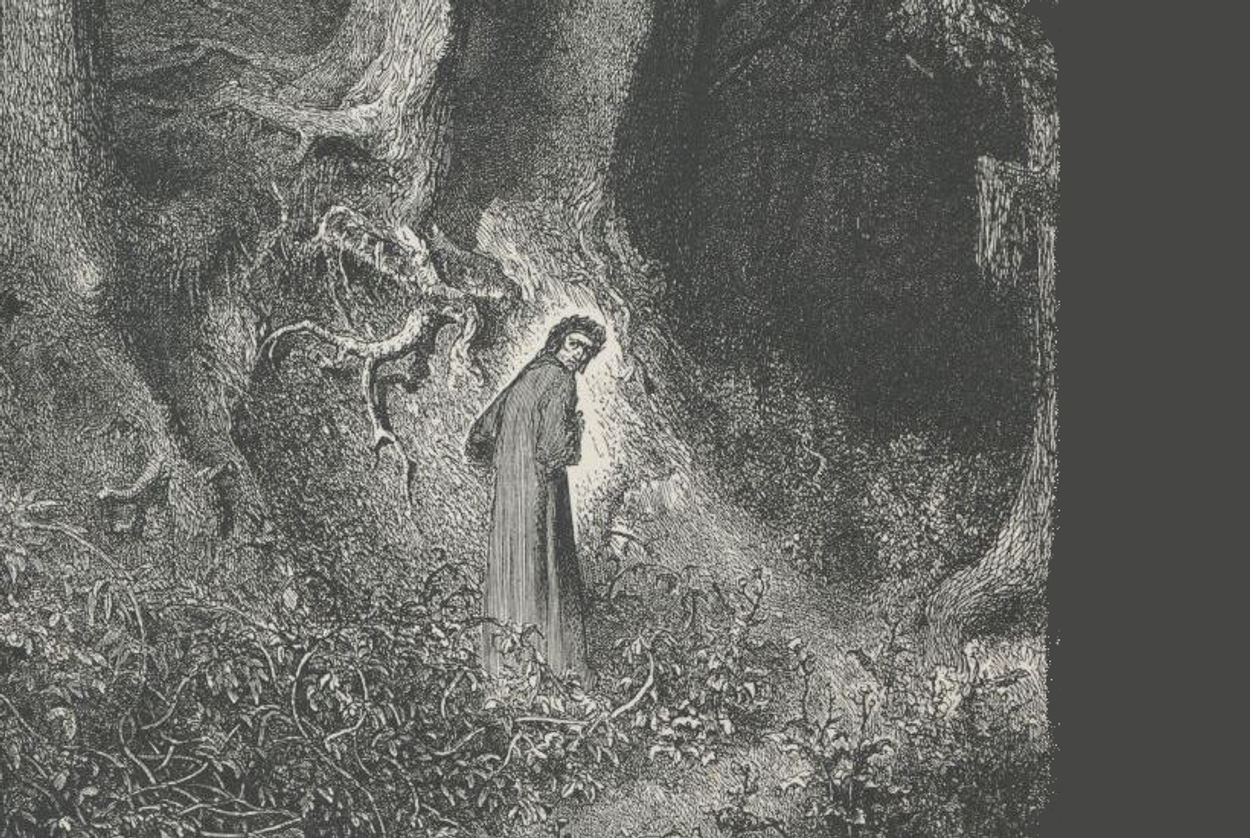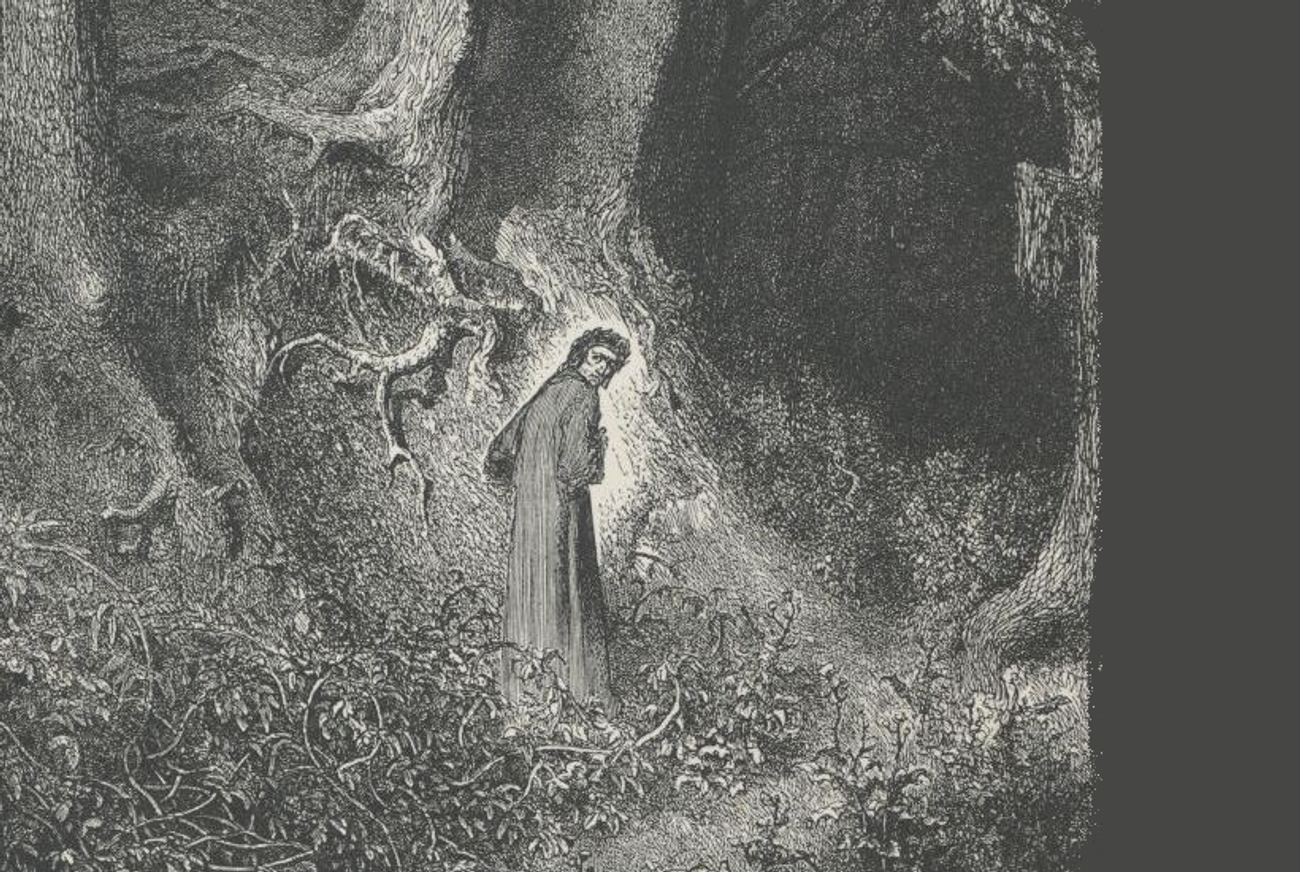Evil Is a Dirty Word
Who is to blame for the spectacle of black-uniformed holy warriors conducting human sacrifices?




We moderns subscribe to the doctrine of “root causes,” but the ancient Greek and Roman poets subscribed to no such thing. The ancients believed in the power of evil. They considered that evil forces were capable of rising up unbidden and wreaking destruction for no reason whatsoever. The people in their poems fly into rages and insanely murder their children, or slaughter enemies, or exterminate populations. The poets recounted every last ghastliness with an air of wide-eyed fascination, and they went about it systematically, too.
They adhered to the requirements of their own discipline. They applied the structures of verse to the permutations of horror. They were prosodists of derangement. But the ancient poets never tried to explain what they recounted. They operated on the assumption that unbridled urges for slaughter and destruction are a human impulse, or, in the case of the whimsical gods, who manipulate the mortals, a more-than-human impulse, and there was no reason to look for underlying causes. Nor did the poets try to demonstrate that outbreaks of evil are something other than outbreaks of evil.
Still, they supposed that, with a sufficient exercise in self-control, people can master and overcome the passions of murderous rage, if they choose to do so. Seneca waxed eloquent on this theme. Stoicism was not fatalism. The medieval poets took a similar view. The medievals ascribed a power to Satan, and they noted the fallen nature of man. But the medievals believed, or at least sometimes believed, that anyone who wishes to refuse Satan’s temptations is free to do so. In this fashion, the belief in the autonomous power of evil proved to be, during a period of 2,500 years, a belief, as well, in free will.
We moderns, though—we look upon evil as a problem in social science. We assume that if someone has gone on a barbarous rampage, or if popular political movements have set out to annihilate entire populations for fantastical reasons, the horrors can be rationally explained. We ask the economists, sociologists, political scientists, and geographers to investigate the origins, and the scholars duly speak to us about poverty, social dislocations, aridification, the psychological costs of national humiliation, and so forth. The explanations conform to what, in the modern age, counts as common sense. And yet, if you look closely at the social-science explanations, they boil down to a single thought, which can be expressed with a pointed finger. It is the idea that, if people in some part of the world have fallen into a deranged and murderous rage, somebody else must ultimately be to blame. This is the meaning of “root causes.”
Who will these other people be, the truly guilty parties? They might be the captains of world capitalism (an unavoidable implication of n+1’s issue last year on Evil). Or the Zionists (a worldwide superstition). The guilty parties might add up to someone named George W. Bush, a popular idea. As for the deranged murderers themselves, they will turn out to be, upon investigation, not so deranged. The ultimate goal of murderous political movements, as viewed through the doctrine of “root causes,” will almost invariably prove to be “realizable,” meaning, subject to pragmatic considerations (c.f., the political scientist Alan Wolfe, Political Evil, 2011). And we moderns tend to accept these explanations, and we do so because, unlike the ancients and the medievals, we do not believe in the autonomous power and allure of insane and murderous rage.
The spectacle of black-uniformed holy warriors conducting human sacrifices gives us the chills, but it also makes us sigh. We tell ourselves: Here is what comes of failing to provide adequate social services to young men in blighted neighborhoods. Or we say: Here is the work of gentlemen named Sykes and Picot, who, on behalf of the British and French imperialists of a century ago, amused themselves by drawing straight-lined national boundaries. We reflect that maybe we should do something to impede the outbreaks of horror. We lift a finger. Just now, we have lifted two fingers. Maybe three! But we moderns have had trouble motivating ourselves to do even this much, and that is because, not believing in evil, we do not believe in free will, either, not even for ourselves.
***
Like this article? Sign up for our Daily Digest to get Tablet Magazine’s new content in your inbox each morning.
Paul Berman is Tablet’s critic-at-large. He is the author of A Tale of Two Utopias, Terror and Liberalism, Power and the Idealists, and The Flight of the Intellectuals.
Paul Berman is Tablet’s critic-at-large. He is the author of A Tale of Two Utopias, Terror and Liberalism, Power and the Idealists, and The Flight of the Intellectuals.